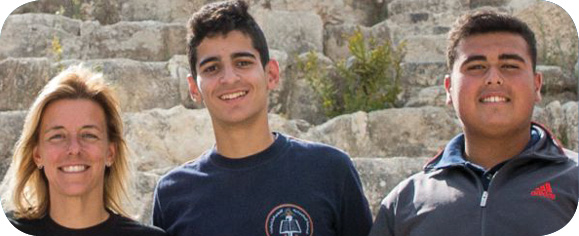 For 30 days in the fall of 2019, children and teachers from schools all over the West Bank were invited to walk with civil-society representatives, Palestinian public servants, United Nations staff, and members of the European Union and other diplomatic missions. Each day we commemorated one of the rights of the child enshrined in the International Convention on the Rights of the Child (CRC).
For 30 days in the fall of 2019, children and teachers from schools all over the West Bank were invited to walk with civil-society representatives, Palestinian public servants, United Nations staff, and members of the European Union and other diplomatic missions. Each day we commemorated one of the rights of the child enshrined in the International Convention on the Rights of the Child (CRC).
The event was organized to mark the 30th anniversary of the CRC, the world’s most widely ratified human rights treaty. But, to be honest, it became clear that this event should take place every year.
Walking the trail was a new experience for many of the participants. In today’s world, children have fewer and fewer opportunities to simply be outdoors and enjoy the landscape. Children are kept busy with school and extra-curricular activities, and too often immobilized by their smart phones and other gadgets.
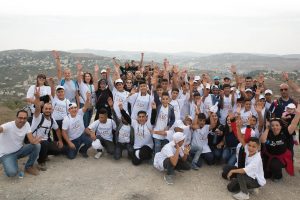
In Palestine, this global trend is accentuated by the multiple movement restrictions that are imposed on the population. It is never easy to simply decide to travel to another part of Palestine, let alone walk across fields and towns that straddle different administrative and security zones, and where checkpoints or encounters with security forces can occur at any time. For boys such as Bara’ who attend schools where the presence of military forces is commonplace, just getting safely to school is a challenge.
During these hours spent walking, we learned a number of fascinating facts about the complex layers of Palestine’s history. We also learned about the crops that are still grown in some localities and the traditional ways to tend the land – whether in caring for olive trees, growing sweet green peppers, or continuing the traditional production of tobacco.
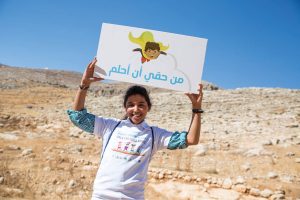
As we spoke about children’s rights, we discovered that some – like the right to education, the right to food, and the right to a family – were very well understood by children of all ages and backgrounds. Surprisingly, children rarely mentioned the right to water in the first instance. And it usually took more time for children to think of other rights, including the rights of children from minority groups, the rights of children living with disabilities, and the right to freedom and safety.
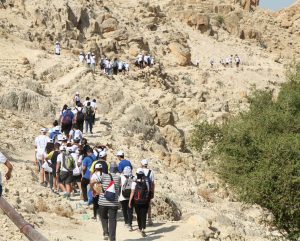
At the same time, it seemed that instinctively all the children we spoke to understood that rights are indivisible and interrelated. We were never able to focus only on one right during our talks along the trail because children such as Yazan knew very well that we cannot separate the achievement of one right from that of all the others. Nor can we separate the achievement of rights for one child from the achievement of every right for every child.
From the discussions that took place along the trail, it appeared that there is still a lot of work to do to reach the point where children in Palestine see themselves as rights holders who know their rights and who are ready to hold adults and institutions accountable for promoting and protecting these rights. Knowing one’s rights is a first step, but the full realization of the spirit of the CRC, especially within a context of continued conflict and life under occupation, is a long walk that will require continued nurturing and effort.
Even if we had forgotten the value of less structured time for children, our experience with them served as a vivid reminder. Girls and boys often said that what they enjoyed most was walking with their friends. They were happy to a have a chance to meet the people from international organizations and diplomatic missions who came to walk with them. Even the youngest displayed the much-celebrated Palestinian hospitality, which we also found in the people we met along the way. Many children said that they would like more chances to spend time learning outdoors.
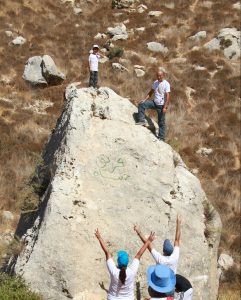
Photo ©UNICEF-SoP/2019.
Throughout this wonderful journey, we never forgot the sad reality that we were unable to walk in the same way across Gaza, where children have even fewer opportunities to enjoy the beautiful landscapes of their country.
Finally, my UNICEF colleagues and myself were reminded of perhaps the biggest lesson of all: In order to truly deliver on our promise to reach every single child and ensure the realization of every child’s rights, we have to create meaningful opportunities for children to express their aspirations and their views of the challenges and opportunities ahead, and be ready to support their vision of the future. This takes time, space, and much more genuine listening.

